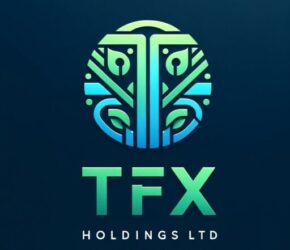The automotive industry, often heralded as a beacon of innovation and economic vitality, faced a seismic shock with the Volkswagen (VW) emissions scandal. This real-life event provides a compelling narrative on the ethical and leadership challenges that major corporations can encounter. The VW scandal serves as a stark reminder of the importance of ethical leadership and transparency in business operations.
The Scandal Unveiled
In 2015, it was revealed that Volkswagen had installed software in its diesel engines to manipulate emissions tests. This deceptive practice was aimed at meeting stringent emission regulations while maintaining vehicle performance. The scandal starkly contrasted with VW’s public commitment to sustainability and severely breached consumer trust, highlighting the catastrophic consequences of unethical corporate behavior. For a detailed look into Volkswagen’s annual performance and management response, refer to the Volkswagen Group Annual Report 2022.
Leadership and Accountability
The VW emissions scandal exposed significant lapses in leadership accountability. Driven by competitive pressures and profit motives, VW executives chose to overlook ethical standards. This short-term focus on financial performance led to long-term reputational damage and substantial legal repercussions. The leadership’s failure to prioritize ethical considerations over profits was a critical factor in the crisis.
Crisis Management Failures
Volkswagen’s initial response to the scandal was marked by denial and deflection, exacerbating public outrage and regulatory scrutiny. Effective crisis management requires transparency, swift action, and a willingness to address issues head-on—all of which were initially lacking in VW’s response.
Proposed Leadership Activities
- Strengthening Ethical Oversight: To prevent similar ethical breaches, VW should establish an independent ethics committee responsible for ensuring compliance and ethical decision-making. This committee should have the authority to audit practices and report directly to the board, ensuring robust oversight that prioritizes integrity and accountability.
- Transparent Communication: Implementing strong internal and external communication channels is crucial for fostering transparency. Employees should feel safe reporting unethical behavior without fear of retribution. Additionally, the company should openly communicate its values, practices, and corrective measures to the public, building trust and ensuring stakeholders are well-informed.
- Rethinking Incentive Structures: Aligning performance metrics with long-term sustainability goals rather than short-term financial targets can mitigate the temptation to engage in unethical practices. This shift encourages a culture of integrity by rewarding behaviors that align with the company’s ethical standards and long-term vision.
- Leadership Training and Development: Continuous training programs focused on ethical leadership and crisis management are essential. These programs should emphasize balancing profit motives with ethical standards and equip leaders with the skills needed to navigate ethical dilemmas effectively.
- Engaging with Stakeholders: Actively involving stakeholders in decision-making processes can enhance transparency and accountability. VW can rebuild trust by engaging in community initiatives, environmental partnerships, and other activities that demonstrate a genuine commitment to sustainability.
Moving Forward: Strategic Changes and Rebuilding Trust
The Volkswagen emissions scandal serves as a powerful reminder of the consequences of compromised ethical leadership. By implementing strategic changes, VW can balance profitability and ethical integrity, ensuring long-term success and resilience.
- Ethical Oversight Committee: Establishing a robust ethical oversight committee is critical. This committee should be empowered to review company practices, ensure regulatory compliance, and promote ethical decision-making. Regular audits and transparent reporting can help prevent future ethical breaches.
- Communication Channels: Enhancing communication channels is essential for fostering transparency. VW should provide employees with safe spaces to voice concerns and report potential misconduct. Externally, the company should commit to open, honest communication with stakeholders, providing updates on corrective actions and progress.
- Incentive Systems: Rethinking incentive systems is crucial for aligning employee motivations with the company’s values. By prioritizing long-term sustainability and ethical behavior over short-term financial gains, VW can create an environment where ethical decision-making is rewarded and incentivized.
- Training Programs: Investing in continuous leadership training programs focused on ethics and crisis management is essential. These programs should equip leaders with the skills needed to navigate complex ethical dilemmas and emphasize maintaining ethical standards in all business practices.
- Stakeholder Engagement: Rebuilding trust with stakeholders requires active engagement and collaboration. VW should partner with environmental organizations, invest in sustainable technology, and embark on community initiatives that demonstrate a renewed commitment to social responsibility. Engaging stakeholders in decision-making fosters a sense of shared responsibility and accountability.
Conclusion
The Volkswagen emissions scandal underscores the critical importance of ethical leadership, accountability, and corporate social responsibility. It highlights the need for leaders to navigate complex decision-making processes while considering the broader societal and environmental implications of their choices. In a world where transparency and ethical conduct are paramount, the VW case serves as a cautionary tale, prompting reflection on corporate practices to ensure alignment with ethical standards and values.
By integrating these strategic changes, Volkswagen can rebuild its reputation, restore public trust, and prevent similar incidents in the future. The journey towards ethical leadership and sustainability is ongoing, but with commitment and transparency, VW can emerge stronger and more resilient.
Additional Reading:
- ChatGPT-4o vs GPT-4: Unveiling the Future of AI
- Harnessing the Power of Wind: The Benefits of Modern Wind Turbine Technology
- Empowering Sustainable Success: How C3.ai’s AI Innovations Elevate ESG Performance
- Introducing GPT-4o: Transforming AI-Powered Conversations
- Leading the Charge in Ethical AI: Strategies from Industry Giants
To buy eco-friendly products, head over to DeviceDistrict
This blog post delves into the VW emissions scandal, highlighting key issues, proposed leadership activities, and strategic changes necessary for rebuilding trust and ensuring long-term success.


Leave a Reply